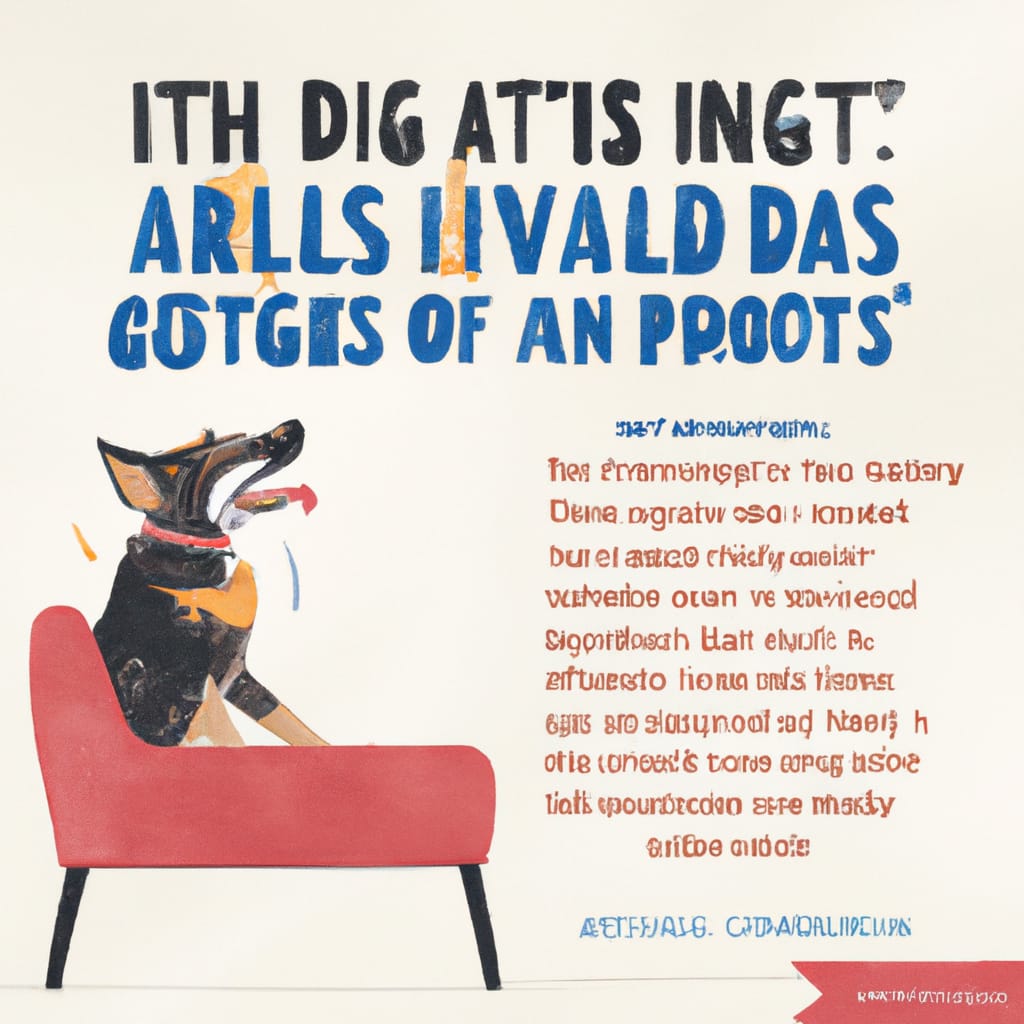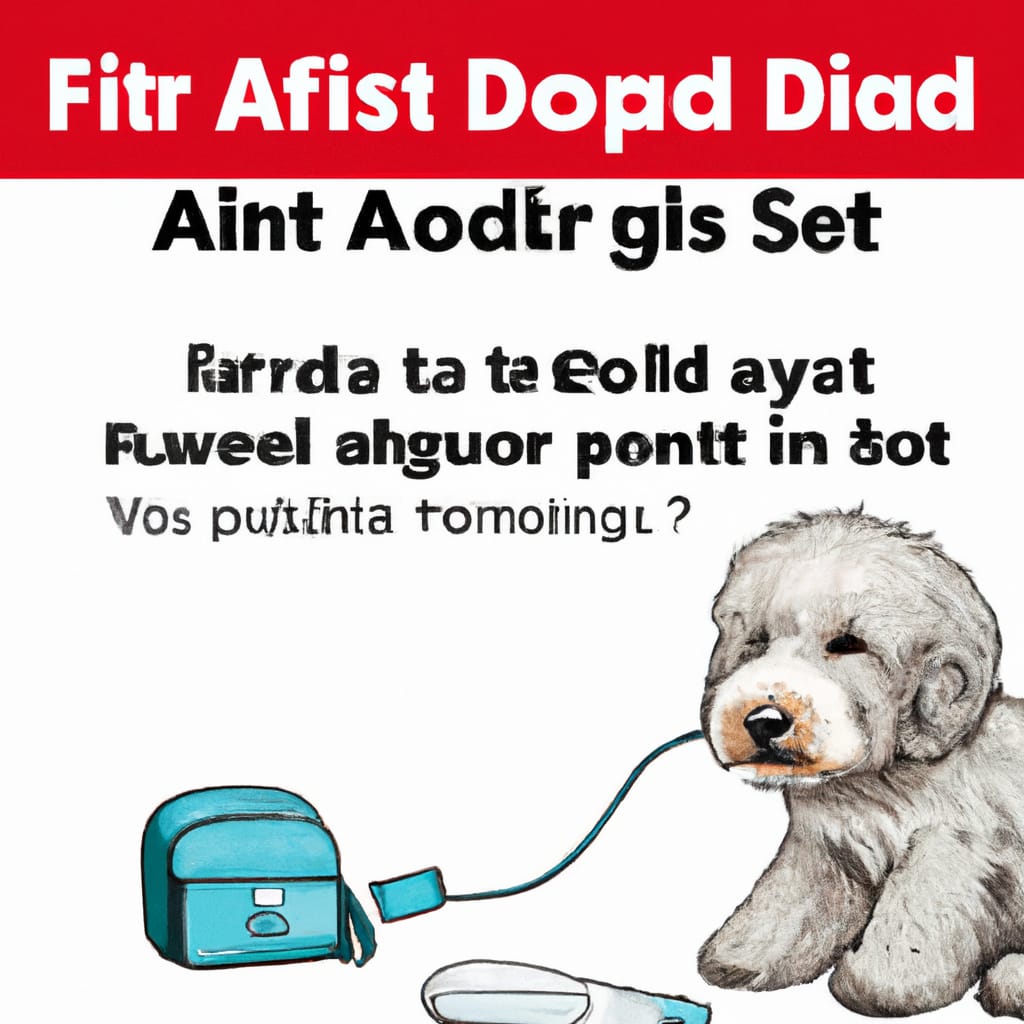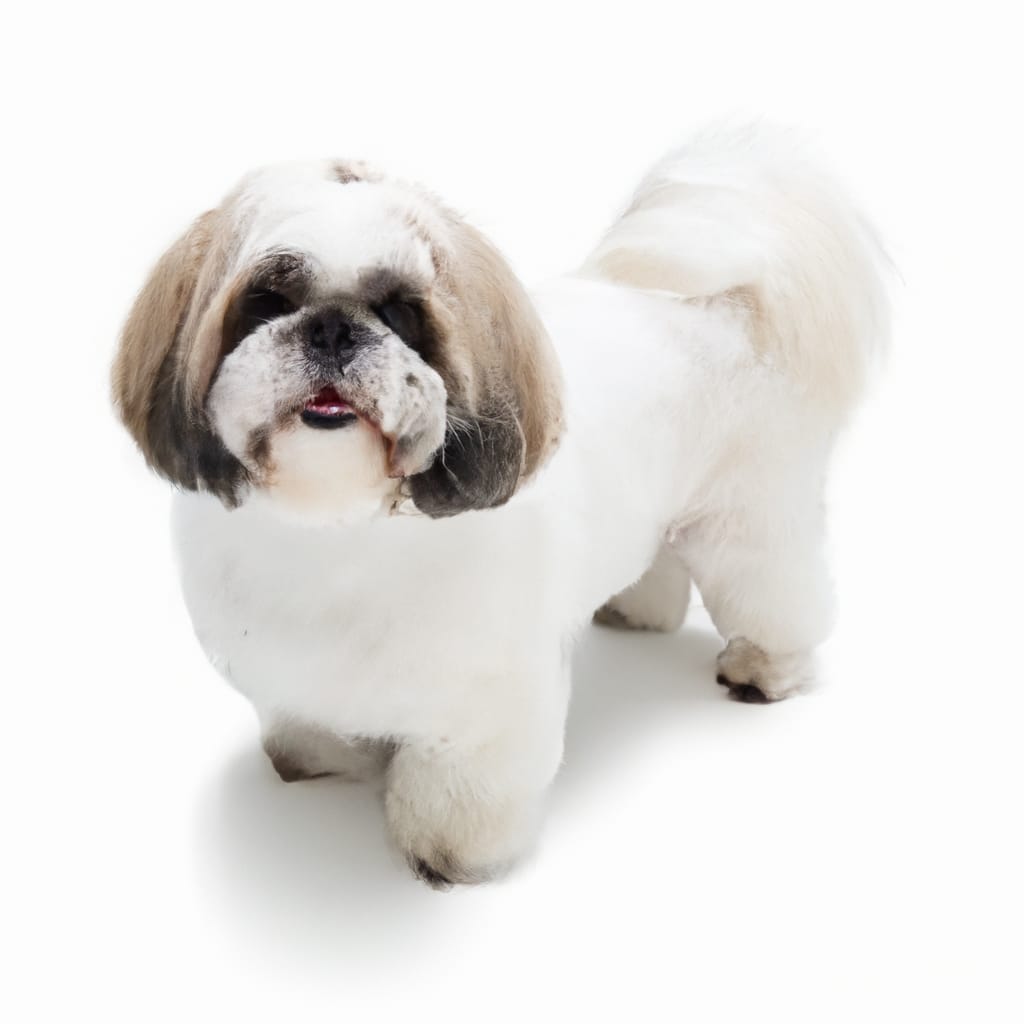Cockapoo Vs Goldendoodle: What’s The Difference?
Are you considering getting a new furry friend but can’t decide between a Cockapoo and a Goldendoodle? Don’t worry, we’ve got you covered! In this article, we’ll explore the main differences between these two popular hybrid dog breeds, making your decision-making process much easier. Whether you’re looking for a smaller or larger size, a specific temperament, or a coat type that suits your lifestyle, we’ll break down the characteristics of Cockapoos and Goldendoodles to help you find the perfect match for you and your family.
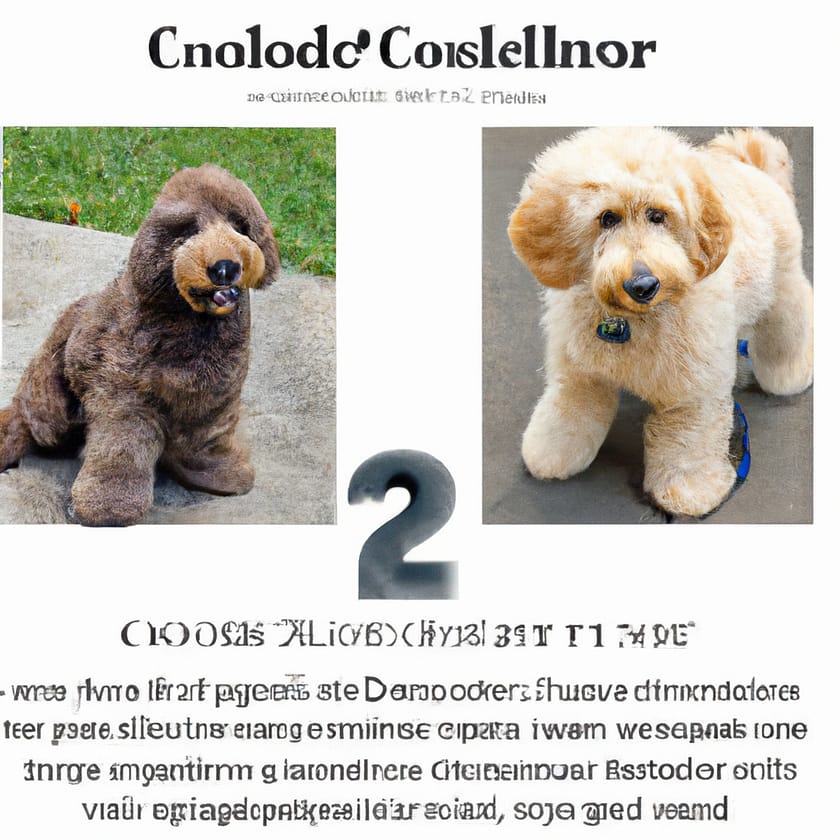
Appearance
Coat
Cockapoos and Goldendoodles both have a variety of coat types due to their mixed breed heritage. The Cockapoo can have a curly, wavy, or straight coat, while the Goldendoodle typically has a wavy or curly coat. Both breeds may also have a combination of colors, including black, white, brown, and various shades of gold. The coat of a Cockapoo is generally less dense than that of a Goldendoodle.
Size
When it comes to size, Cockapoos are typically smaller than Goldendoodles. Cockapoos can range from small to medium size, weighing between 12 to 25 pounds. Goldendoodles, on the other hand, can be medium to large, with weights ranging from 45 to 80 pounds. The size difference between the two breeds makes Cockapoos a popular choice for individuals or families living in apartments or with limited space.
Physical Features
While both Cockapoos and Goldendoodles may have some similar physical features due to their Poodle ancestry, there are some notable differences. Cockapoos often have round faces and expressive eyes, while Goldendoodles tend to have longer muzzles and more fox-like faces. Additionally, Cockapoos may have a more compact and sturdy build, while Goldendoodles are known for their athletic and graceful appearance.
Temperament
Intelligence
Both Cockapoos and Goldendoodles are renowned for their intelligence. These mixed breeds inherit their intelligence from their Poodle ancestors, who are known to be one of the smartest dog breeds. This high level of intelligence makes them quick learners and allows them to excel in various training activities, including obedience training, agility, and even tricks.
Affectionate
One of the most endearing traits of Cockapoos and Goldendoodles is their affectionate nature. These breeds are incredibly loving and enjoy being a part of their human family’s daily activities. Whether it’s cuddling on the couch or going for long walks, Cockapoos and Goldendoodles thrive on human companionship and are always eager to please their owners.
Trainability
Both Cockapoos and Goldendoodles have a reputation for being highly trainable dogs. Their intelligence and desire to please make them quick to pick up commands and respond well to positive reinforcement training methods. However, it’s important to note that individual temperament can vary, and some dogs may have a more independent streak. Consistent training from an early age is essential to ensure they grow into well-behaved and obedient companions.
Exercise and Activity
Energy levels
Cockapoos and Goldendoodles have moderate to high energy levels, but Cockapoos generally have slightly lower energy compared to Goldendoodles. Both breeds require daily exercise to keep them physically and mentally stimulated. Regular walks, playtime, and interactive activities such as puzzle toys and agility training are recommended to prevent boredom and potential behavior issues.
Exercise Needs
Cockapoos and Goldendoodles both benefit from a mix of physical and mental exercise. Daily walks for at least 30 minutes to an hour are essential for their well-being. Additionally, engaging them in interactive play sessions and providing opportunities for off-leash exercise in a safe, enclosed area can help fulfill their exercise needs. Goldendoodles, being the larger breed, may require slightly more exercise compared to Cockapoos.
Mental Stimulation
In addition to physical exercise, Cockapoos and Goldendoodles thrive on mental stimulation. Keeping their minds engaged through training sessions, puzzle toys, and interactive games helps prevent boredom and destructive behaviors. These intelligent breeds enjoy learning new tricks and participating in activities that challenge their problem-solving skills.
Grooming
Coat Type
The coat type of Cockapoos and Goldendoodles can vary depending on the specific mix of genes inherited from their parents. Both breeds often have coats that are low shedding or non-shedding, making them appealing options for individuals with allergies or those who prefer a cleaner home environment. However, it’s important to note that some individuals within these breeds may still have moderate shedding.
Shedding
Due to their mixed breed heritage, both Cockapoos and Goldendoodles typically shed less compared to purebred dogs. However, the amount of shedding can vary from dog to dog, even within the same litter. Cockapoos with a straighter coat may shed slightly more than those with a curly or wavy coat. Goldendoodles, with their Poodle ancestry, often have minimal shedding, making them a popular choice for allergy sufferers.
Grooming Requirements
Both Cockapoos and Goldendoodles require regular grooming to keep their coats in good condition. Regular brushing is necessary to prevent matting and tangling, especially for dogs with longer and curlier coats. Additionally, periodic professional grooming is recommended to maintain the health and appearance of their coats. Grooming sessions also provide an opportunity to check for any skin issues or health concerns.
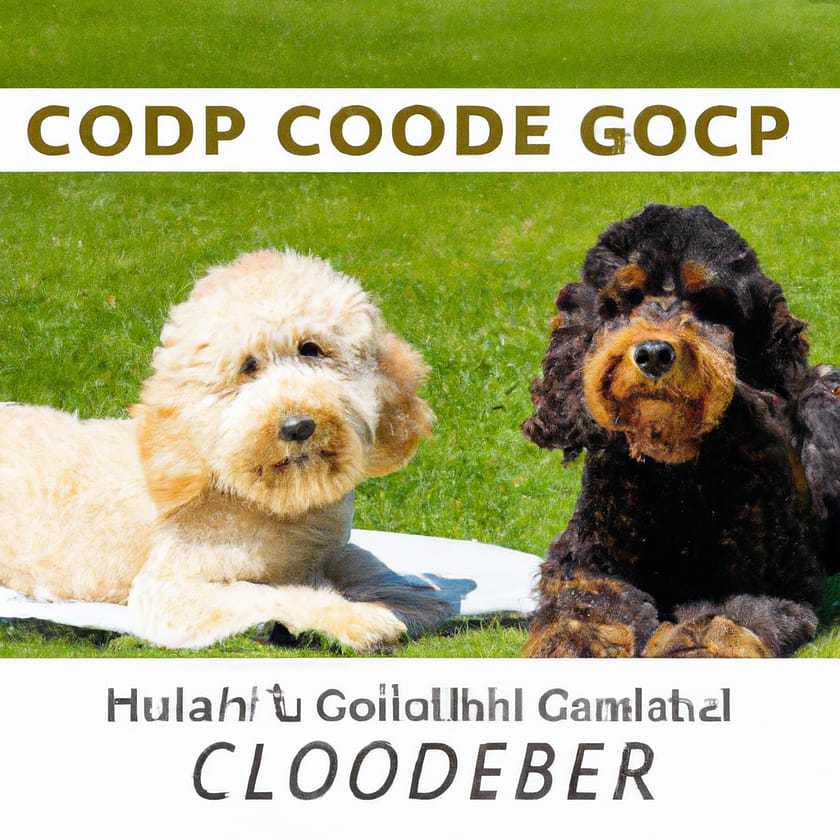
Allergies
Hypoallergenic Qualities
Cockapoos and Goldendoodles are often considered hypoallergenic or allergy-friendly breeds due to their low shedding coats. However, it’s important to note that there is no such thing as a completely hypoallergenic dog. While these breeds may produce fewer allergenic particles, individual reactions can vary. It’s always recommended for individuals with allergies to spend time with the specific dog they are considering to assess their tolerance before bringing them into their home.
Dander Production
Dander, which consists of tiny flakes of dead skin, is the primary allergen that triggers allergic reactions in individuals. Cockapoos and Goldendoodles produce less dander compared to many other dog breeds, reducing the likelihood of triggering allergies. Regular grooming and maintenance of their coats can further minimize dander production.
Allergic Reactions
While Cockapoos and Goldendoodles are generally considered allergy-friendly, it’s crucial to remember that allergies are highly individualized. Some people may still experience allergic reactions to these breeds, although the severity is often reduced compared to breeds that shed more. If you have allergies, it’s recommended to spend time with the specific dog you are considering and consult with a healthcare professional before making a decision.
Health and Lifespan
Common Health Issues
Both Cockapoos and Goldendoodles are generally healthy breeds, but they can still be prone to certain health issues. These can include eye problems such as cataracts and progressive retinal atrophy (PRA), hip dysplasia, ear infections, and allergies. Responsible breeding practices, regular vet check-ups, proper nutrition, and good grooming practices can help minimize the risk of these health issues.
Typical Lifespan
Cockapoos and Goldendoodles typically have a similar lifespan, ranging from 12 to 15 years on average. However, it’s important to note that individual lifespan can vary depending on various factors such as genetics, overall health, and quality of care. Providing a balanced diet, regular exercise, routine veterinary care, and a loving environment can help ensure a longer and healthier life for your furry companion.
Genetic Predispositions
As mixed breeds, Cockapoos and Goldendoodles can inherit genetic traits from both parent breeds. While this can sometimes result in hybrid vigor, where the offspring may be healthier than their purebred counterparts, it’s essential to consider any genetic predispositions associated with the parent breeds. Consulting with reputable breeders who perform health screenings on their breeding dogs can help minimize the risk of inheriting certain genetic conditions.
Compatibility with Children and Other Pets
Interaction with Children
Both Cockapoos and Goldendoodles tend to get along well with children. They are often patient and tolerant, making them suitable companions for families with young children. Their playful and affectionate nature allows them to form strong bonds with children, and they are generally eager to participate in all the fun activities kids have to offer.
Interaction with Other Animals
Cockapoos and Goldendoodles are typically sociable dogs and can get along well with other animals when properly socialized from a young age. Early exposure and positive experiences with other pets, such as cats or other dogs, can help foster harmonious relationships. Supervision and a gradual introduction process may be necessary when introducing Cockapoos or Goldendoodles to new animal companions.
Family-Friendly Nature
Both Cockapoos and Goldendoodles are known for their family-friendly nature. These breeds thrive when they are an integral part of the household and enjoy being involved in family activities. They are often adaptable and can easily adjust to the routines and lifestyles of their human family members. Cockapoos and Goldendoodles are known to be loyal and loving companions for families of all sizes.
Training and Socialization
Obedience Training
Cockapoos and Goldendoodles are highly trainable due to their intelligence and eagerness to please. Basic obedience training, including commands such as sit, stay, and come, should start from an early age. Positive reinforcement techniques, such as rewards and praise, are typically the most effective methods. Consistent training and regular practice sessions help establish a strong bond between you and your dog while ensuring they grow into well-behaved and obedient adult dogs.
Socialization Needs
Socialization is crucial for both Cockapoos and Goldendoodles to ensure they become well-adjusted and confident dogs. Exposing them to various people, animals, sounds, and environments from a young age helps prevent fearfulness and aggression later in life. Puppy classes, visits to dog-friendly places, and playdates with other dogs can all contribute to their social development.
Behavioral Challenges
While Cockapoos and Goldendoodles are generally good-natured and easy to train, they may still face behavioral challenges if not properly trained or socialized. Separation anxiety, excessive barking, or destructive chewing can occur if they feel bored or lonely. These issues can often be mitigated through consistent training, providing mental stimulation, and ensuring they receive the appropriate amount of exercise and attention.
Cost and Maintenance
Initial Purchase Cost
The cost of a Cockapoo or a Goldendoodle can vary depending on factors such as location, breeder reputation, and specific traits of the individual dog. Typically, Cockapoos tend to be more affordable than Goldendoodles due to their smaller size. The initial purchase cost can range anywhere from a few hundred dollars to several thousand dollars, depending on various factors.
Lifetime Expenses
Owning a Cockapoo or a Goldendoodle involves ongoing expenses throughout their lifetime. Factors such as food, grooming, toys, and regular veterinary care contribute to the overall cost. Additionally, unforeseen medical expenses should also be taken into account. It’s important to be financially prepared to provide for your furry friend’s needs and have a budget in place for their upkeep.
Veterinary Care
Regular veterinary care is essential for the overall health and well-being of Cockapoos and Goldendoodles. Routine check-ups, vaccinations, parasite prevention, and dental care are all important aspects of responsible pet ownership. It’s important to factor in the cost of veterinary care when considering a Cockapoo or a Goldendoodle, as these expenses can add up over the course of their lifetime.
Popularity and Availability
Breed Popularity
Both Cockapoos and Goldendoodles have gained popularity over the years as desirable companion dogs. Their adorable appearance, friendly disposition, and hypoallergenic qualities contribute to their appeal. However, it’s essential to remember that popularity can also lead to an increase in irresponsible breeding practices and the presence of puppy mills. It’s crucial to research reputable breeders or consider adoption through rescue organizations to ensure you are supporting ethical practices.
Availability of Puppies
The availability of Cockapoo and Goldendoodle puppies can vary depending on location and breeder availability. It’s important to approach the process of acquiring a puppy responsibly and be prepared to wait for the right litter or choose adoption as an alternative. Reputable breeders may have waitlists or specific criteria for potential owners to ensure their puppies are going to suitable homes.
Breeders and Rescues
When looking to add a Cockapoo or a Goldendoodle to your family, it’s important to research and choose a reputable breeder or consider adoption from a rescue organization. Responsible breeders prioritize the health and well-being of their dogs and perform necessary health screenings on their breeding dogs. Adoption from a rescue organization provides a loving home to a dog in need while also helping to reduce the number of dogs in shelters.
Making the decision to bring a Cockapoo or a Goldendoodle into your life can be a rewarding experience. These breeds offer a perfect blend of intelligence, affection, and compatibility with families, making them fantastic additions to households of all types. By understanding their appearance, temperament, exercise needs, grooming requirements, and health considerations, you can ensure a lifelong bond with your furry best friend.









